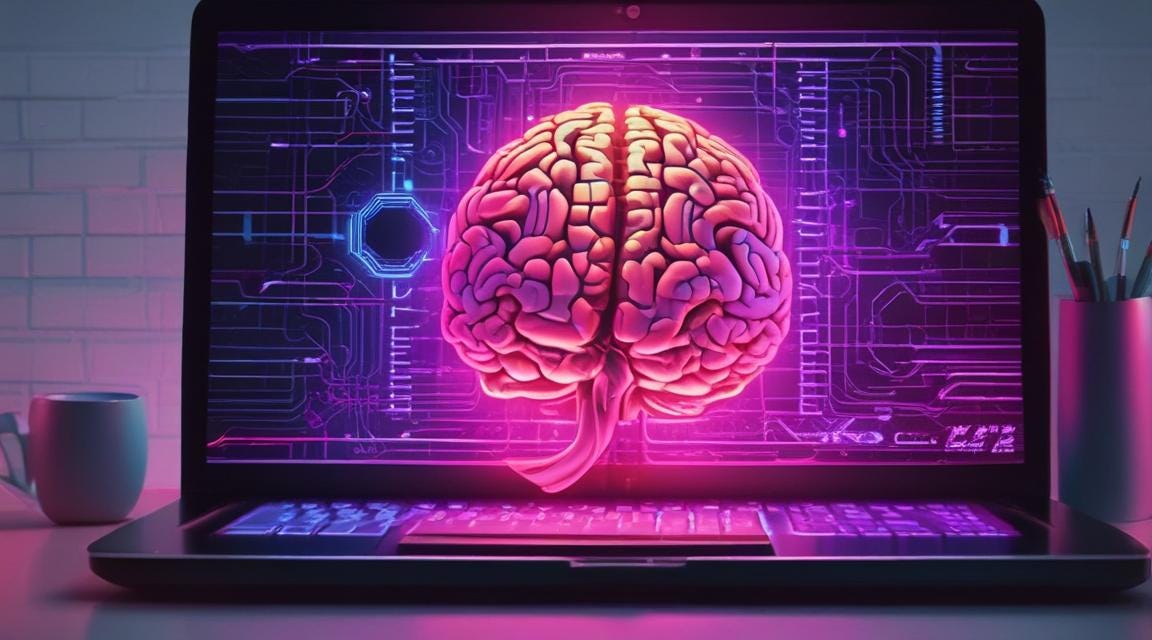Refactor Your Brain: How to Reprogram Your Brain for Success
Have you ever thought about the similarities between the human brain and computers? How we program software isn’t too dissimilar to how we refactor our brains. Once we start to understand how to do so, we can open up many new opportunities for self-improvement and personal development.
Dagna Bieda, a former software engineer turned career coach, brings her unique insights to the forefront by comparing our mental processes to programming principles. This blog post dives into understanding how you can refactor your brain, drawing wisdom from experiences in the tech world and the subtleties of human behaviour, ultimately helping technology professionals thrive.
Contents
🚀 Background
🔍 Dagna's Journey into Software Engineering
🤝 Cultural Differences in the Workplace
💻 Refactoring the Brain
🛠️ Identifying Bugs and Getting Feedback
🌍 The Importance of Perspective
🧠 Reprogramming Techniques
📚 Coaching Techniques
🚫 Abolishing Complaining
📬 Concluding Thoughts
❓ FAQs
🚀 Background
Imagine the human brain working much like a sophisticated software application. Dagna Bieda argues that understanding how our minds work through programming principles can help address modern challenges such as imposter syndrome, burnout, and lack of clarity in decision-making.
🔍 Dagna's Journey into Software Engineering
Dagna always envisioned building the future and embarked on her journey by studying robotics engineering. Here's her fascinating path into the software world:
Desire to Create the Future: Dagna was driven by a desire to construct future technologies.
Educational Background: She studied control and robotics engineering in Poland.
Initial Struggles with Programming: Programming classes were mandatory and daunting for Dagna.
First Jobs:
Worked in companies making educational robotic toys.
Engaged in European Union-sponsored robotics projects.
Shift to Programming:
Realised the broader impact of an application could reach millions.
Initially disliked programming but gained newfound appreciation upon understanding the importance of clean and maintainable code.
Career Progression: Rapidly moved from junior to senior engineer after relocating to the United States and meeting her husband.
🤝 Cultural Differences in the Workplace
Shifted from Poland to the United States, Dagna faced dramatic cultural changes in collaboration and workplace dynamics:
Collaboration vs. Individualism
Poland: Emphasised group effort and teamwork.
US: Focused on individual leadership and responsibility.
Hierarchy Differences
Poland: More hierarchical structures, clear ladders to climb.
US: Flatter structures, with executives more accessible.
Your experience working in the US might include similar observations, highlighting differences like these:
Greater autonomy and trust in employee ideas.
Direct access to directors and higher-ups, often unseen in hierarchical settings.
💻 Refactoring the Brain
Harnessing the analogy of refactoring code, Dagna explains how refactoring the brain can lead to improved outcomes:
AI and Human Mind:
Both are trained on datasets, with human experiences acting as the training set for our brain.
The need to retrain or reprogram when patterns of thinking are not producing desired results.
User Interface (UI) vs. Background Processes:
Human behaviour (UI) is guided by subconscious thoughts and beliefs (background processes).
Changing these underlying processes can alter visible behaviours.
🛠️ Identifying Bugs and Getting Feedback
Recognising "bugs" in behaviour and seeking feedback are vital in refactoring the brain:
Feedback Sources
Peers and Colleagues: Provide candid insights into actions and impacts.
Personal Feelings: Emotions can signal when something's amiss.
Third-party Perspective: Coaches, therapists, or trusted friends offer unbiased feedback.
Example: Being passed over for a promotion might indicate a need for changes in behaviour, which can be identified through feedback.
� The Importance of Perspective
Shifting perspective can unlock profound personal and professional growth:
Benefits of Perspective Shifts
Allow individuals to see beyond immediate constraints.
Enable solutions by viewing problems from new angles.
Feedback Loop
Thinking: Drives actions.
Behaviour: Affects how the world perceives us.
Perception: Provides feedback that influences our next thoughts and actions.
Example: Clients doubling their salaries or overcoming imposter syndrome by changing their perspectives.
🧠 Reprogramming Techniques
Reprogramming oneself involves consistent effort and awareness:
Repetition
Building new neural pathways through repeated actions.
Creating habits by aligning actions with new thoughts.
Awareness and Reflection
Understanding root causes behind behaviours and beliefs.
Reflecting on past experiences to identify patterns.
Example: Overcoming public speaking anxiety by associating it with past negative experiences, then practicing new public speaking techniques.
📚 Coaching Techniques
Effective coaching techniques can facilitate personal growth:
Journaling Exercises
Encourages self-awareness and honesty.
Identifies limiting beliefs and uncover hidden strengths.
Safe Space
Engaging with an unbiased coach outside the workplace presents a safe environment for honest introspection.
Consistency and effort in participation are key to seeing successful outcomes.
🚫 Abolishing Complaining
If given the power to change one thing in the world of work, Dagna would abolish complaining for 24 hours:
Benefits
Enhances constructive dialogue.
Encourages solutions-focused thinking over dissatisfaction.
Complaints don't solve problems; constructive disagreement and seeking solutions do.
📬 Concluding Thoughts
To connect with Dagna and learn more about refactoring your brain:
Visit The Mindful Dev
Connect on LinkedIn
For those interested in delving deeper, Dagna’s upcoming book, "Brain Refactor," will be available soon.
Resources:
Check out Mel Robbins' podcast for additional personal development insights.
❓ FAQs
Q: How can I get started on refactoring my brain?
A: Start by seeking feedback from peers and reflecting on personal feelings. Use journaling exercises to identify and address underlying beliefs and thoughts.
Q: How long does it take to see results from brain refactoring?
A: Changes can occur within a few months, but it requires consistent effort and practice.
Q: Do I need a coach to refactor my brain?
A: While a coach can provide invaluable guidance, self-reflection exercises and third-party feedback can also be effective if executed diligently.
Q: What if I repeatedly fail to change despite efforts?
A: Persistence is key. Identifying deeper underlying issues may require professional help from a coach or therapist.
By understanding the intricate workings of the brain akin to programming principles, one can harness the potential to improve both personal and professional aspects of life, ensuring a fulfilling career in the tech realm.
Guest: Dagna Bieda
Dagna is an engineer turned coach for engineers and ambitious tech professionals. With 10+ years of coding experience and coaching since 2019, she’s the tough love, “been in your shoes” kinda Coach. Her clients’ backgrounds include a spectrum ranging from ICs to CTOs, from small startups to FAANG+ companies, from 2 to 20+ years of experience, and from self-taught devs through career-changing Bootcamp grads to college grads and PhDs. She helps her clients reach their potential and exciting career opportunities by refactoring their brains. To learn more about her work, visit www.themindfuldev.com.
Links:
www.themindfuldev.com











